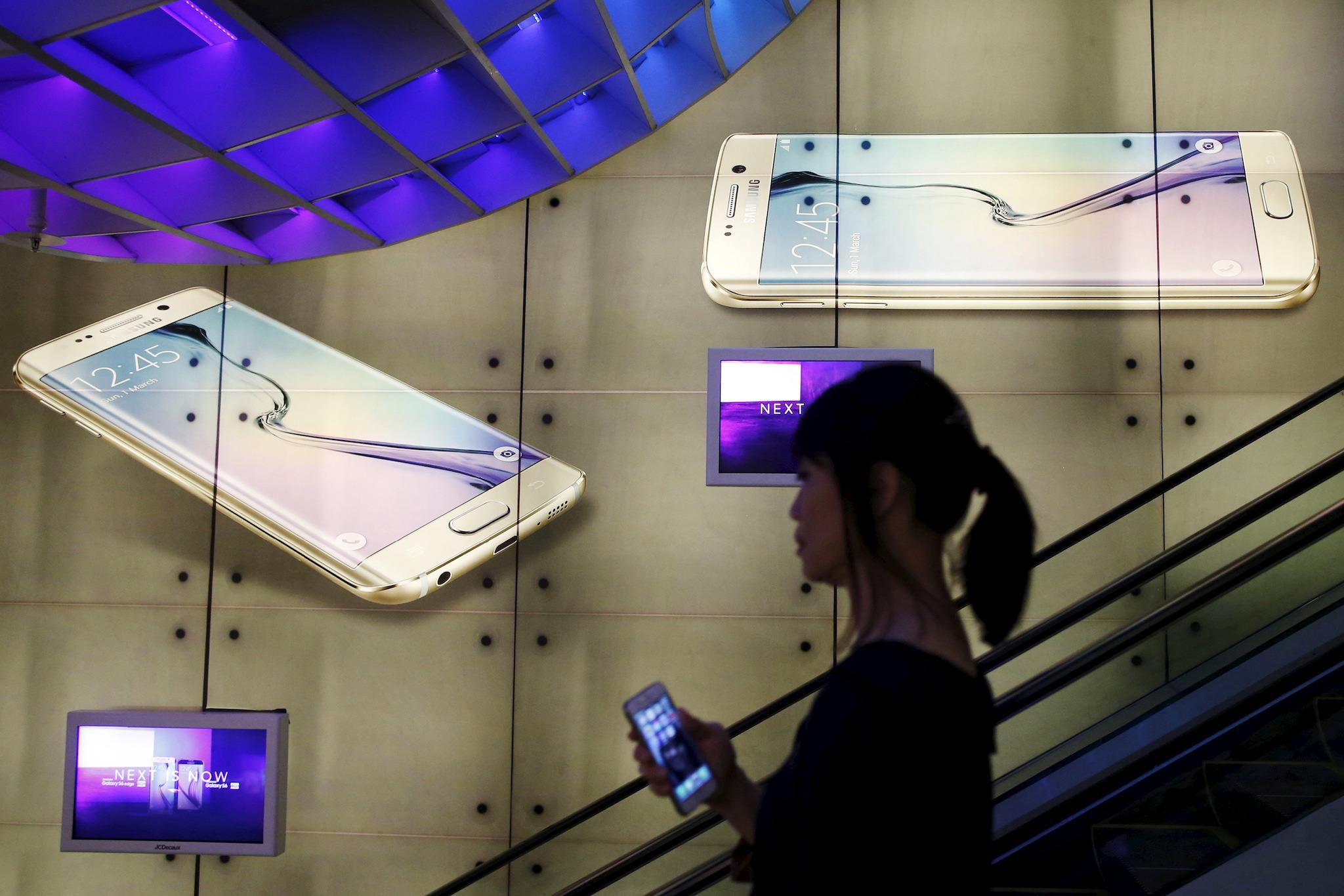Apple and Samsung fight in US Supreme Court in battle that could decide the future of tech
The case is being heard at one of the worst times for Samsung, just after it was forced to pull its flagship phone from sale

Samsung could win back some of the $399 million judgement it was forced to pay out to Apple, in a case that saw it fined for allegedly copying some parts of the iPhone.
The Supreme Court appears to have raised doubts about the judgement as part of a hearing that could overturn one of the most important court judgements in recent years.
A win for Samsung would come at an important time, with billions being wiped off the South Korean company’s value as a result of its exploding phones.
The Supreme Court is hearing argument in the latest instalment of a long-running dispute between the two phone companies. The current case is an appeal against a judgement that ordered Samsung to pay all the profits it made on 11 phone models – after Apple argued that the features at issue were central to their success, despite the relatively small part of the devices that they actually made up.
The case and its fallout could send out ripples across the entire tech industry. It comes down to a question of how much lucrative patents should be protected if they come at the cost of innovation and new features for users, and whatever decision is made is likely to affect the design of products for many years to come.
But it also includes highly-complicated decisions about what damages the companies should be awarded. Supreme court judges have said that deciding exactly how much compensation is awarded is likely to be a challenge for jurors, and have favoured new rules that would set a limit on those awards.
The case is part of series of high-stakes lawsuits between the technology rivals that began in 2011. None of the early generation Samsung phones involved in the lawsuit remains on the market.
Cupertino, California-based Apple sued over South Korea-based Samsung's duplication of a handful of distinctive iPhone features for which Apple holds patents: the flat screen, the rounded rectangle shape of the phone, and the layout of icons on the screen.
The companies are wrangling over how much Samsung is required to compensate Apple under an 1887 law that requires patent infringers to pay "total profit." At issue is whether that means all the profits from phone sales, or just the profit related to the specific components that were copied.
Samsung says the hefty award ignores the fact that its phones contain more than 200,000 other patents that Apple does not own. Apple argues that the verdict is fair because the iPhone's success was directly tied to its distinctive look.
The federal appeals court in Washington that hears patent cases has ruled that Apple was entitled to all the profits.
Samsung's lawyer Kathleen Sullivan told the court that total profits should be limited only to the sliver of the product that was copied. She said the parties could use consumer surveys and other expert testimony to show how much the design affected sales.
The justices seemed open to the idea, but several kept wondering how it would play out using the example of the Volkswagen Beetle, a car with a quirky design that surged to popularity in the 1960s.
"It may be that the body accounts for only 10 percent of the cost of the car, but 90 percent of the profits are attributable to the shape of the car," Justice Sonia Sotomayor said.
But Justice Samuel Alito said the Beetle example was not that helpful.
"I can't get over the thought that nobody buys a car, even a Beetle, just because they like the way it looks," he said.
Breyer relied on other examples to suggest that a test limiting damages to just one component that was infringed, and not the entire product, could work.
"You know, wallpaper, you get the whole thing. A Rolls Royce thing on the hood? No, no, no. You don't get all the profit from the car," he said.
Arguing for the Obama administration, Justice Department lawyer Brian Fletcher said the justices should adopt a multi-factor test that includes how prominent are the design features in the product, and to what extent consumers buy an iPhone or other device based on how it looks instead of what it can do.
Both Sullivan and Apple's lawyer, former solicitor general Seth Waxman, seemed open to the court adopting a version of the government's test.
Technology giants, including Facebook and Google, are backing Samsung. They say upholding the lower court ruling would value a single design patent at the expense of all other things a smartphone can do, leading to excessive windfalls not intended by the law.
On the other side, companies including sportswear manufacturer Adidas and jewelry maker Tiffany & Co. say allowing recovery of total profits will discourage "design pirates" and protect companies that invest in creative designs.
The argument comes at a rough time for Samsung. The company announced Tuesday that it is halting sales of Galaxy Note 7 smartphones after reports that even the replacements for problem-plagued recalled models were catching fire. That model was not part of the patent litigation.
A ruling in the case is expected by June.
Additional reporting by agencies
Join our commenting forum
Join thought-provoking conversations, follow other Independent readers and see their replies
Comments
Bookmark popover
Removed from bookmarks